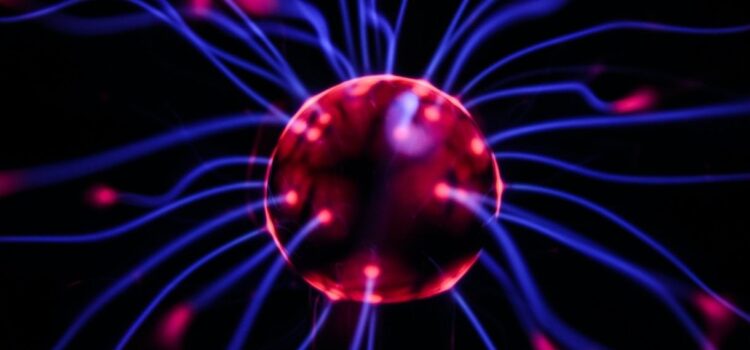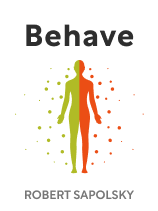

This article is an excerpt from the Shortform book guide to "Behave" by Robert Sapolsky. Shortform has the world's best summaries and analyses of books you should be reading.
Like this article? Sign up for a free trial here .
What is a neurotransmitter? What are the key neurotransmitters that shape our behavior and moods?
Neurotransmitters are chemical messengers in the brain that pass on signals between the brain’s cells—neurons. Neurotransmitters play a key role in how you feel and act moment to moment. There are dozens of neurotransmitters at work in the human brain, but the most noteworthy ones are dopamine, serotonin, oxytocin, and testosterone.
Let’s take a look at the major brain neurotransmitters and how they drive behavior.
Dopamine and Serotonin: Motivation Molecules
Dopamine is a neurotransmitter that promotes goal-oriented actions; think of it as the “motivation hormone.” Interestingly, Sapolsky says that dopamine is more about the anticipation of a reward than about enjoying the reward itself—in other words, we get dopamine boosts when we work toward a goal, not just when we achieve it.
Serotonin is another brain neurotransmitter associated with happiness and motivation. Sapolsky says that serotonin works in conjunction with dopamine to enhance its effects, particularly when it comes to long-term goals. Low serotonin is linked with impulsiveness, aggression, and antisocial behavior—though, strangely, high serotonin levels have been found to have the same effects. As with everything about human behavior, Sapolsky says that serotonin’s exact effects depend on numerous other variables, and even the scientists running the studies can’t always say what those variables are.
(Shortform note: Deficiencies in dopamine and serotonin are believed to cause various mental health disorders. For example, some researchers believe that a lack of dopamine causes—or at least contributes to—Attention Deficit Hyperactivity Disorder (ADHD). The dopamine deficiency causes people with ADHD to quickly lose focus on goals, and they have difficulty with emotional regulation. Similarly, many doctors believe that a serotonin deficiency contributes to depression.)
Oxytocin: The “Love Drug”
Oxytocin (and the closely related hormone vasopressin) reduces aggression, increases empathy and trust, and promotes bonding behaviors like physical touch or eye contact. In short, oxytocin and vasopressin cause us to act in a more prosocial way—that is, in ways that are supportive and helpful to others. Furthermore, experiencing prosocial behavior causes us to produce more oxytocin, creating a positive feedback loop.
However, Sapolsky warns that the apparently-positive effects of these hormones greatly depend on context: While oxytocin and vasopressin make us more helpful to people in our in-group, they actually make us more aggressive and suspicious toward those who aren’t. In other words, they strengthen the bonds we already have, but also make us more insular and hostile toward outsiders.
(Shortform note: In addition to making us more aggressive toward “outsiders,” oxytocin can also make us more forgetful. However, oxytocin’s effects on memory—like so many things Sapolsky discusses—seem to be context-dependent. Briefly, the researchers found that people who are more comfortable relying on others scored worse on a memory test after taking oxytocin, while more independent people actually scored better after taking it. The researchers concluded that more study was needed to determine exactly how oxytocin affects memory, and how it interacts with people’s tendencies toward independence.)
Testosterone: Impulsiveness and Confidence
Testosterone increases self-assurance and optimism while decreasing anxiety. It also suppresses part of the neocortex while boosting limbic system activity—in short, it makes you more impulsive and less rational.
Sapolsky says that many people think testosterone causes aggression. However, while there is a correlation between testosterone and aggression, it’s not as strong nor as direct as previously thought. In fact, if anything, it appears to be the other way around: Aggressive behavior leads to testosterone production, rather than high testosterone levels leading to aggressive behavior.
(Shortform note: As people age—especially men—reduced testosterone levels can cause physical and emotional changes. Most notably, people may experience decreased bone and muscle strength, as well as a loss of motivation and a generally depressed mood. Doctors have found that testosterone therapy can reverse some of these effects in aging men. Some men have reported feeling younger and stronger after taking testosterone supplements, but there’s little scientific evidence supporting it as a treatment for those with normal testosterone levels for their age.)

———End of Preview———
Like what you just read? Read the rest of the world's best book summary and analysis of Robert Sapolsky's "Behave" at Shortform .
Here's what you'll find in our full Behave summary :
- An exploration of the myriad influences on human behavior
- A scientific look at why some people do such terrible things
- If there's really such a thing as free will






